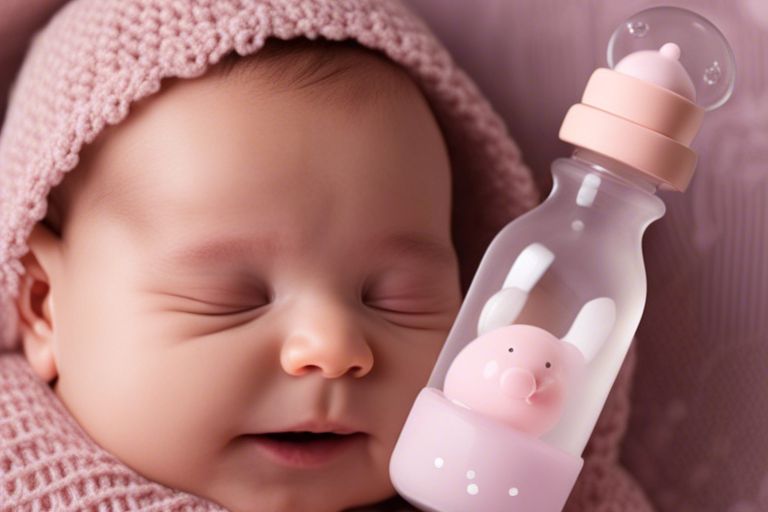tips, tricks and guides for parenthood
Baby feeding can be a challenging experience for new parents, and the debate over pacifiers continues to divide opinions. While pacifiers can provide instant comfort and soothing for babies, they can also have negative effects on feeding habits. Understanding the pros and cons of using a pacifier is crucial, as it can impact your baby's feeding development. Let's research into the benefits and drawbacks of pacifiers to help you make an informed decision for your little one.
Any parent knows that a pacifier can be a lifesaver when it comes to soothing a fussy baby. The sucking action can help to calm and comfort your little one, making it a great tool for settling them down for a nap or bedtime.
Any parent who has experienced the pain of watching their baby undergo medical procedures knows the relief that a pacifier can bring. Not only does it help to manage pain during vaccinations or medical tests, but it can also be used to soothe babies suffering from reflux or colic.
Pros: Using a pacifier for pain management can provide a quick and effective way to comfort your baby in distressing situations. It can also help to distract them from the discomfort, making the experience more bearable for both baby and parent.
Effects of using a pacifier as a sleep aid for babies can be truly remarkable. The sucking motion can help to lull your little one into a peaceful slumber, making it easier for them to drift off to sleep and stay asleep for longer periods.
Soothing: By using a pacifier as a sleep aid, you can help your baby establish a comforting bedtime routine that promotes relaxation and better sleep patterns. This can lead to a more restful night for both baby and parent, improving the overall quality of sleep for the whole family.
One of the most important benefits of using a pacifier for pain management and medical purposes is the positive impact it can have on your baby's well-being. From easing discomfort during medical procedures to promoting better sleep, a pacifier can be a valuable tool in helping your little one feel more secure and comforted.

Once again, when considering the use of a pacifier for your baby, it's vital to weigh up the Pros and Cons of Using a Pacifier. While pacifiers can have some benefits, there are also drawbacks to be aware of.
On occasion, the use of a pacifier can lead to potential feeding confusion in babies. They may have difficulty differentiating between suckling on a pacifier and suckling during feeding times, which can impact their feeding habits.
Potential effects on dental health are a concern with prolonged pacifier use. Constant sucking on a pacifier can lead to dental issues such as misalignment of teeth or jaw development problems.
Dependency on a pacifier may result in challenges when it comes to weaning your baby off it. Babies may become emotionally attached to the comfort provided by the pacifier, making it harder to break the habit.
Now, let's discuss when to introduce a pacifier to your baby. Any decision to introduce a pacifier should ideally be made after breastfeeding is established, usually around three to four weeks of age. Introducing a pacifier too early can interfere with breastfeeding, so it's vital to wait until your baby has a good latch and feeding routine.
Best practices for pacifier use are crucial for your baby's well-being. It is important to limit pacifier use to sleep times and nap times to reduce the risk of dependency. It's also recommended to choose a one-piece pacifier to prevent any potential choking hazards. Additionally, regularly check the pacifier for any signs of wear and replace it as needed to maintain safety.
From above, it is clear that pacifiers have their own set of pros and cons when it comes to their effects on a baby's feeding. While they can provide comfort and help with soothing, they might also impact the baby's ability to feed properly. It's crucial for parents to weigh these factors and make an informed decision based on their baby's needs and feeding habits. Consulting with healthcare professionals can also provide valuable guidance in determining whether using a pacifier is beneficial for the baby's feeding routine.
A: Pacifiers can help soothe babies, promote self-soothing, reduce the risk of Sudden Infant Death Syndrome (SIDS), and provide comfort during feeding or sleep times.
A: Some cons of using pacifiers include the possibility of nipple confusion if introduced too early, potential dental issues if used for too long, and the risk of dependency leading to difficulty in breaking the habit later on.
A: Pacifiers can either help or hinder a baby's feeding routine. While they can provide comfort and aid in soothing, they can also interfere with a baby's natural feeding cues and lead to reduced milk intake during breastfeeding or bottle feeding.
A: It is generally recommended to wait until breastfeeding is well established, which is usually around 3 to 4 weeks of age, before introducing a pacifier to avoid nipple confusion and ensure proper feeding habits.
A: Parents can effectively manage the use of pacifiers by offering them only when necessary for soothing or comfort, avoiding prolonged use, monitoring for any signs of dependency, and gradually weaning the baby off the pacifier when appropriate. It is also vital to consult with healthcare professionals for guidance on the best practices for pacifier use.